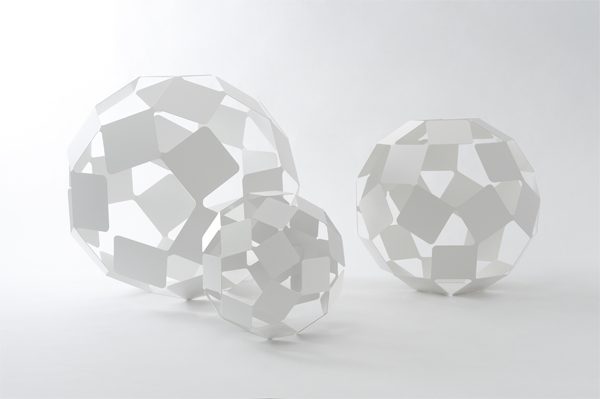Japanese studio led by Aki Sato, Nendo, introduces Dancing Squares, a collection of everyday objects designed to transmit the sense of movement, composing a series of items that are unstable in appearance. The square geometrical pieces that make up the object appear to freeze in time and space. The collection includes lamps, stools, tables and bookshelves.
The collection can be seen at the Marina Bay Sands, as part of the Art Stage Singapur, programme within the joint exhibition No Boundaries from the 13th to the 16th of January with the designers Tithi Kuchamuch, David Trubridge, Hans Tan, Anon Pairot, Jason Ong, Hunn Wai + Lanzavecchia + Wai, P.C.EE and Da+h.
Available in two different sizes and as a suspended lamp or a foot lamp, the diffuser is made up of square pieces that compose a rotating sphere. Nevertheless, it is the flat surface of the pieces that provides stability to the object as well as projecting the light beams in different directions.
The top shelf of the bookshelf design rotates with respect to the rest of the structure at a 45º angle producing a frozen equilibrium effect that evokes an inevitable collapse. Available in two or three shelf versions, it allows the user to place books in different arrangements.
Although slanted in appearance, the table surface maintains horizontality. Objects are placed in the interior in order to create a confusing visual effect as different planes intersect.
Sketch, Dancing Squares, TAble, Nendo, 2011.
Photos by Masayuki Hayashi.
